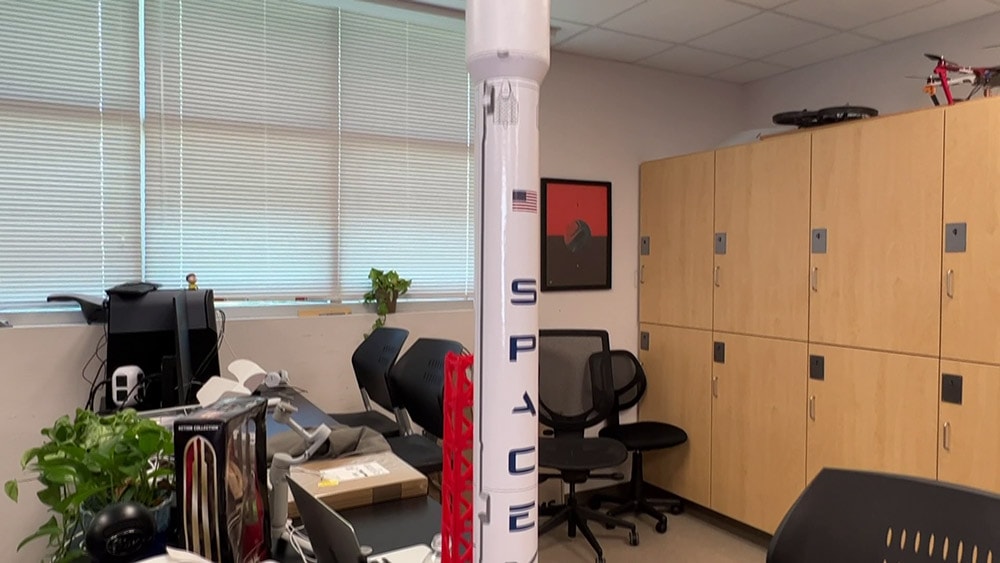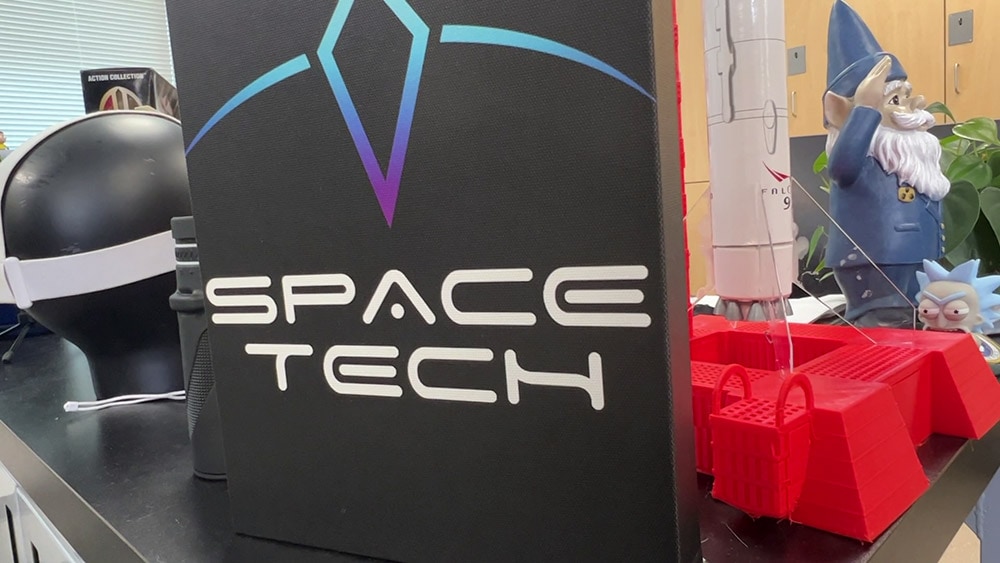A Southwest Florida tech company is preparing to launch itself and the local economy into space in 2023 using 3D-printed satellites. Space Tech founder Wil Glaser set his sights sky-high, hoping what is now just a model rocket will carry his company into the future.
More from the News
“It’s kind of ‘eye on the prize’ because eventually, our satellites will be launching on something similar, like a Falcon 9,” Glaser said. “We’re going to be developing satellites and making satellites and then developing other space applications.”
And the application Glaser and his tech team want to use to get into space is a unique form of 3D-printed cube satellite. Glaser says the benefit of using 3D printers is being able to take something from concept to completion in a matter of days.
“We got to be on, like, version 20, something like that,” said Space Tech engineer Mike Carufe. “We have five different variants of each version.”
Carufe has an extensive history of 3D printing.
“Over the years, I’ve done some amazing projects,” Carufe said. “I’ve worked on, you know, medical stuff, I’ve done tons of inventions, I’ve done fashion. I’ve jumped into bed in basically every field, but space was something very untouched for me.”
A cube satellite is design-intensive, essentially a satellite in a box. It’s made to efficiently house all the hardware and software needed to operate in space. Space Tech’s current version can fit into a briefcase.
“This is the latest and greatest version,” Carufe said. “This is where we’re starting to really push the envelope of how the sat’s put together. So, we have the swept-back solar panels, we have the high, the very high zoom LED from the bottom, and things are starting to mechanize.”

3D printers are evidently well-suited to making satellites, creating parts layer by layer using a powder-to-metal process. When heated, Carufe explained, it fuses all the metal together and turns the part from plastic into an actual metal component that can be sent into space. Not much assembly is required, so Space Tech does not need a large facility. In fact, the company is located on property owned by Florida Gulf Coast University.
“They offered us a lab space to be able to experiment and prototype,” Glaser said. “We can focus on our commercial application… at the same time, bring in students from FGCU, so they can be learning a lot of these applications as well.”
Space Tech is also consulting with military experts; its buyer would be the U.S. Department of Defense. As it fine-tunes the 3D printing to meet functional needs, the satellites are nearly poised for take-off.
“We could be in manufacturing and putting something into a Falcon 9 within six months,” Glaser said.
SpaceX missions already rent space to take payloads into space. It runs anywhere from $300,000 to $1 million, which is why manufacturing something small is important.
Subscribe to AM Chronicle Newsletter to stay connected: https://bit.ly/3fBZ1mP
Follow us on LinkedIn: https://bit.ly/3IjhrFq
Visit for more interesting content on additive manufacturing: https://amchronicle.com


